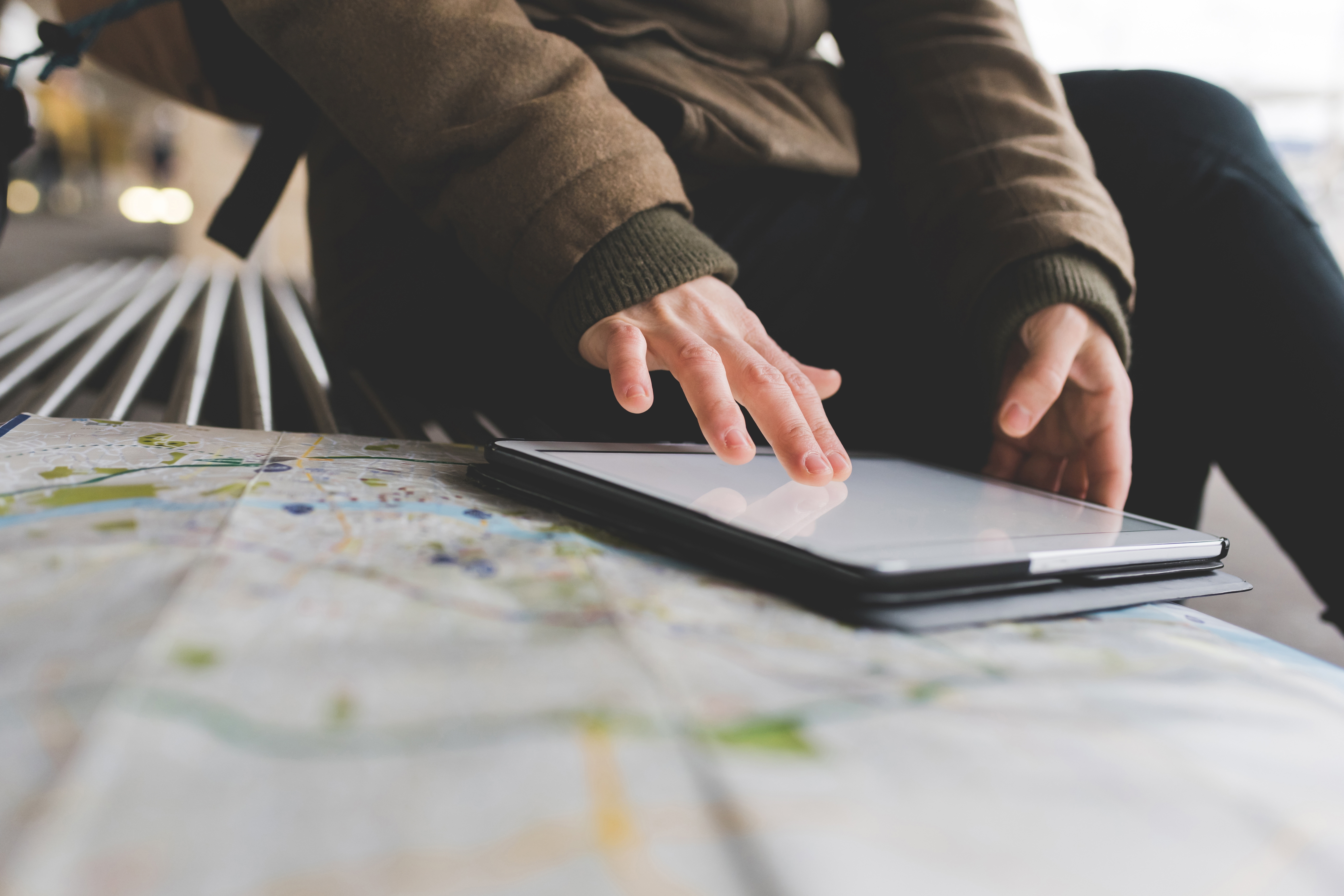Traveling consciously is easier than ever. Artificial Intelligence has become a key ally in designing responsible experiences that align with our values and respect the planet.

AI and Sustainable Tourism… A Growing Convergence?
Technological evolution is no longer a distant field for those who dream of exploring the world in a more sustainable way. Today, Artificial Intelligence (AI) is emerging as a transformative tool in the tourism sector, facilitating more informed, ethical, and responsible decisions. International organizations like UN Tourism already highlight the role of AI as a strategic factor in reducing environmental impact and promoting a sustainable tourism model.
Growing concern about climate change, combined with the sophistication of smart platforms, has ushered in a new era. Thanks to AI, planning a trip with sustainability criteria is no longer a task reserved for experts—it is now an accessible option for all types of travelers.

Personalization with purpose.
One of AI’s major advances is the ability to design highly personalized experiences. Based on data such as your interests, budget, and travel style, algorithms can suggest sustainable destinations, certified accommodations, low-emission transportation, or activities managed by local communities. This allows travelers to filter through a vast amount of information and highlight only those options aligned with a responsible philosophy.
For example, an intelligent system can help you choose between multiple destinations, prioritizing those with diverse cultural offerings, active environmental policies, or a sustainable mobility model. It can even recommend tourist destinations that hold the Biosphere Certified distinction for destinations, or companies with the same certification (Biosphere Certified for companies), as they meet high sustainability standards and develop activities aligned with the United Nations Sustainable Development Goals (SDGs).

Smart recommendations for responsible decisions.
AI also enables the evaluation of multiple variables that impact the sustainability of a trip, from transportation to lodging and participation in local experiences. Some platforms already integrate sustainability criteria into their recommendations, considering:
- Low-carbon transportation: AI suggests train routes, electric buses, or shared vehicles to replace short-haul flights.
- Environmentally certified accommodations: Tools recognize certifications like Biosphere Certified, which guarantees sound social, economic, and environmental practices.
- Responsible local activities: Itineraries include experiences run by local entrepreneurs, promoting equity and authenticity.
- Better temporal and spatial distribution of tourism: Recommendations avoid peak hours or overcrowded destinations, helping to relieve pressure and promote regenerative tourism.
In this sense, smart digital platforms act as an ethical compass, helping travelers choose more conscious options without compromising the quality of their experience.

Optimized routes that reduce your footprint.
Route planning is one of the areas where AI has the greatest impact on sustainability. Advanced tools can calculate efficient itineraries that minimize unnecessary travel, prioritize active mobility, and propose alternative routes to relieve pressure on overcrowded destinations.
In addition, by integrating real-time data on weather, traffic, or visitor flow, these platforms can offer adjusted plans that reduce pressure on sensitive ecosystems and encourage a slower, more connected form of exploration. These types of recommendations help transform tourism consumption patterns, encouraging travelers to rediscover destinations through a more human, equitable, and sustainable lens.

Discovering the unexpected.
One of AI’s great contributions is its ability to suggest places off the tourist radar. By analyzing large volumes of data, algorithms can identify original, less crowded alternatives—from towns with circular economy initiatives to reserves managed by Indigenous communities.
These alternative destinations not only offer a more authentic experience but also help diversify tourism’s impact. Artificial Intelligence can also highlight projects that have earned sustainability certifications, such as those promoted by Biosphere, ensuring that the trip has a positive effect on the destination.

Virtual assistants for the conscious traveler.
Virtual assistants and specialized chatbots are another increasingly important resource. Their role goes beyond logistical support—they can act as eco-guides, sharing practical tips, water refill station locations, recycling points, or reminders to avoid waste.
These systems learn from your habits and refine their suggestions, adapting them to a more sustainable travel style—and they do so in real time, anticipating your needs. This ongoing interaction enhances the experience without replacing the richness of local human contact. On the contrary, by saving time and effort in planning, it allows the traveler to focus on what matters most: connecting with the place and its people.

A new travel paradigm.
The future of tourism involves integrating technology in service of the planet. Using Artificial Intelligence ethically and with a focus on sustainability is a unique opportunity to transform how we move, discover, and coexist with the world.
At Biosphere, we celebrate these innovations that, when well-applied, become powerful allies in achieving the Sustainable Development Goals (SDGs). Our commitment is to provide real tools to help destinations, companies, and travelers make more responsible and regenerative choices.
Sustainability is not a trend—it’s a necessity. And when used wisely, technology can be one of our greatest allies.

In line with the SDGs and global sustainability.
Sustainable tourism, supported by technologies like Artificial Intelligence, is key to achieving goals such as climate action (SDG 13), responsible consumption and production (SDG 12), and reducing inequalities (SDG 10). By enabling conscious, balanced decisions, AI helps transform tourism consumption patterns, promote inclusion, and protect ecosystems.
At Biosphere, we work every day to make this transition possible. We invite destinations, companies, and travelers to join a model that respects the planet’s limits and improves the lives of local communities.
Because travel can also be an act of care and transformation. Now it's up to us to discover how to plan our next vacation with a positive impact.
The future of tourism is already here—and it begins with our own decisions.
Have a happy and sustainable trip!













